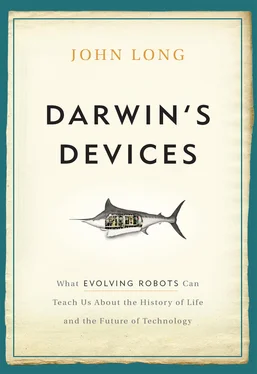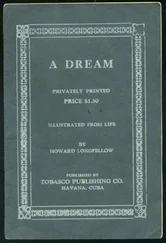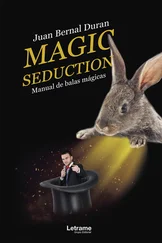I forgot about World War II, and Spock, for good measure, thanks in no small part to junior high school and the rage of the hormones. Studying primate social behavior and mammalian reproductive biology became the pursuit of the neighborhood boys. On the latter subject, we found our school library to be woefully inadequate. Fortunately, both of Fritz and Karl’s parents were physicians, and the Drs. von Valtier kept their medical library at home well stocked and unlocked. We read widely and voraciously, appreciating the fact that anatomical texts were illustrated, and we thought it best not to trouble the good doctors with the knowledge of our library visits, even though I’m sure they would’ve been proud of the fact that we were inspired and independent scholars.
I was proud, for my part, of learning to drive. I impressed my instructor, and myself, when I was the only student in drivers’ education who could handle a manual transmission. My instructor, however, was already married, so I needed a different means of drawing the attention of the eligible girls in my class. Where facility with a stick shift failed, the opportunity provided by a license and the family car worked. I turned sixteen, got the keys, and fell in love.
A year later I was still in love, dating the same girl, and was now the owner of a 1169 cc, four-speed, three-door hatchback ’74 Honda Civic that my Uncle Pete had kindly saved for me in his garage. I also had a job, washing dishes at Mateo’s Pub, to support my bliss. With such happiness, imagine my surprise when, at age seventeen, I started thinking about war again, and this time for real. I wanted to be an officer in the Navy. It was simple. I wanted to go to the Naval Academy at Annapolis, get a four-year college degree there, and then, I don’t know, go fly Grumman F-14 Tomcats on the aircraft carrier USS CVA(N)-65 Enterprise .
Mom went, as they say in the military, ballistic. Still unaware of the irony, she again discussed the confluence of ordnance and my distal appendage as a deterrent to my service in the armed forces. But, I countered, this wasn’t the draft, the press gangs that she decried in years of old. That, and the Vietnam War, were long over. I was choosing to go into the Navy to pursue my education (and maybe to mess around in boats too). Then I’d have a degree, a steady job, and after twenty years as an officer I could retire and start my own marine biology business, like Jacques Cousteau. A man, a plan, a canal: Panama!
My working-man argument failed to gain purchase with Mom. Let’s sum her position up: war is bad because I would be trained to kill. I needed to switch tactics. Okay. Hmmm. Too bad I couldn’t find a way to be trained to save instead. Wait! The Coast Guard, which I immediately dubbed, for marketing purposes, the “humanitarian branch of the military.” Mission: search and rescue, drug interdiction, aids to navigation, and, my favorite, iceberg patrol. [197] Nowadays, the US Coast Guard has eleven missions: www.uscg.mil/top/missions/.
Mom was on board.
The Coast Guard maneuver gave me some sea room, so to speak. I was allowed to take the admissions test for the Navy’s Nuclear Power School (passed) and applied for and won an NROTC (Navy Reserve Officer Training Corps) scholarship to the School of Engineering at the University of Michigan. Mission accomplished? Not quite. It turns out that as I learned more about the Coast Guard, and the Coast Guard Academy in particular, I decided I didn’t want Navy—I wanted Coast Guard. Only one problem: I didn’t get into the academy.
I was crushed. My boyhood dreams and now teenage ambitions were dashed upon the rocks of reality. Tormented by the Sirens, I resigned myself to become a naval officer through Michigan’s ROTC program. Mom would just have to deal with the Navy.
But she didn’t have to. About four weeks after I’d received the Academy’s letter stating that I was not a principal appointee, I received another saying that I had been named as an alternate, and a position had become available. Would I still be interested, they asked, in joining the “hard core about which the Navy forms?” By gum, an officer and a gentleman, I would be!
After high school graduation I sailed off, with Mom at the helm in her Chrysler K-car land cruiser, to the Coast Guard Academy in New London, Connecticut. Next day, my hair was shorn, I bravely kissed my mother good-bye, and then I joined the military. But not for long. After the six-week boot camp, I found a way to get out, honorably. And I was glad to do so. But not for the reasons you might think.
I didn’t mind the endless push-ups. I loved the seamanship training and messing around on boats and ships. I hated having to learn how to waltz. (I’m not kidding. Remember: an officer and a gentleman .) The food was okay, but I wasn’t allowed to look at it (I’m not kidding about that, either). Even being hazed as a lowly “swabby” by the upperclassmen was tolerable. For example, by proclamation in our cadet handbook, we were commanded to know the correct time at all times. But it also stated that the correct time was impossible to know. With this paradox in mind, I was trained to spit out, rapid fire, the one and only proper response to the simple question, What time is it, mister? “Sir, I’m greatly embarrassed and deeply humiliated that due to unforeseen circumstances over which I have no control, the inner workings and hidden mechanisms of my chronometer are in such great inaccord with the sidereal motions by which time is generally reckoned that I cannot with any degree of accuracy state the correct time, sir. Sir, I can state without fear of being too far in error that the approximate time is [glance at watch and state the time in military time].”
With all of this fun playing war, what would cause me to abandon ship? Ronald Reagan. I entered the Academy in 1982 as one of 232 cadets, sir. What I learned, after swearing in, was that my class, the class of 1986, was smaller, by exactly 100 cadets, than the class of 1985. The Coast Guard, for historical and strategic reasons under the Department of Transportation rather than the Department of Defense (see: humanitarian branch of the military!), was subject to drastic budget cuts under Reaganomics. A survey was conducted amongst the swabbies regarding preference for majors. Not interested in marine engineering, ocean engineering, mechanical engineering, electrical engineering, physics, or prelaw for any of my three choices, I thrice checked, with a regulation number-two pencil, the small square boxes of my destiny: marine science. The next day it was announced: the Academy would be cutting the major in marine science. Hit! You sunk my battleship!
STUDY WAR NO MORE
Whereas my inner child wished for exciting wars and my young adult pined for a seafaring career, my middle-aged adult, looking back, is mortified with both desires. How easy it was to romanticize every aspect of war when you aren’t in it. It wasn’t until I transferred to the College of the Atlantic (COA), where I earned my undergraduate degree, that friends and mentors helped me challenge my implicit acceptance of the Roman poet Horace’s call to battle: Dulce et decorum est pro patria mori (“To die for the fatherland is a sweet thing and becoming” [198] This is the translation given by Gilbert in his comprehensive book: Martin Gilbert, The First World War: A Complete History (New York: Henry Holt, 1994), 352. Horace’s phrase has other translations, including, “It is sweet and right to die for your country.”
).
One mentor was Dr. Ted Grand, an expert in the functional anatomy of mammals at the Division of Zoological Research at the National Zoological Park (NZP) in Washington, DC. His colleague and my COA adviser, Sentiel, a.k.a. “Butch,” Rommel, had persuaded him to take me on for an internship. Butch, a former naval officer and expert in navigation of vessels and people, had course corrected my life by helping me reckon, after leaving the Coast Guard, the heading back to the ocean. At the water’s edge on Mount Desert Island, Maine, Butch had me studying the biomechanics of marine vertebrates. Apprenticing at the NZP, reasoned Butch, was staying the biological course because Ted would help me improve my skill as a functional anatomist and my ability to ask and answer evolutionary questions with a quantitative approach.
Читать дальше












